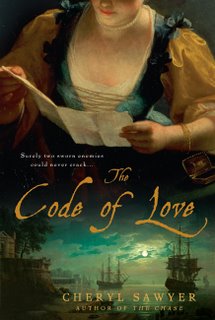STATUS: You’ll never believe it, but I was a holiday shopping maniac today. I promised myself I would get it done early and this is the first time in years that I kept that promise. I feel so jubilant.
What’s playing on the iPod right now? And there wasn’t even one note of holiday music anywhere.
Ah, yesterday’s post got the query world panicking. Obviously I need to do some clarifying about referrals, recommendations, and all that stuff in between.
A referral is when a client calls or emails me and asks, “May I send this writer your way?”
It’s straightforward and I’m on the lookout for the query. The person being referred knows that the current client is going to contact me etc.
A suspect name drop is really obvious as well—it’s usually from a writer who has a project in a genre I don’t represent. Or the wording of the query is odd and open for interpretation. Don’t worry that you are mistakenly sending out suspect name drop queries because the difference is pretty clear.
However, it’s the gray area in recommendations that’s causing consternation, so let’s tackle that.
A recommendation can be done in passing at a conference as in “my agent is terrific, you should query her” or “yes, it was lovely to meet you and yes, you can use my name when contacting my agent so-n-so.”
The trick for using these types of recommendations appropriately is simply in how you word it in your query.
Don’t use “Previously Published Author recommended I contact you regarding my project.”
This is accurate, true, but it doesn’t give any context to the recommendation. Context is what makes the difference in the query letter when name dropping.
I’ve gotten the above so many times and when I’ve asked my clients, most of them said something like, “oh yeah, I met that person at XYZ and they asked who my agent was.”
That was the extent of the conversation and then that writer interpreted it as having permission to use my client’s name in the context of a recommendation.
It’s a stretch.
Do use “I met Previously Published Author at such-n-such conference and she suggested that you might be interested in my project because you rep XYZ genre. She gave me permission to use her name when contacting you.”
It’s honest, in context, and I will take your query seriously. You’re not over-playing the name drop in any way.
You can also use “I met your client INSERT NAME at the such-n-such conference and she had nothing but positive things to say about you, which is why I’m sending you my query…”
It’s not a recommendation per se but it’s the reason why you decided to query me. I like that. It’s straightforward.
I’m a Midwesterner. We like forthright.
So what I’m saying is that as long as you have included the appropriate context regarding the recommendation, then you aren’t going wrong with the name drop. You won’t be considered suspect.
It’s just those queries that are stretching the definition of recommendation that are problematic. And trust me, those are so obvious they might as well come with a neon sign that says “suspect name dropping.”



